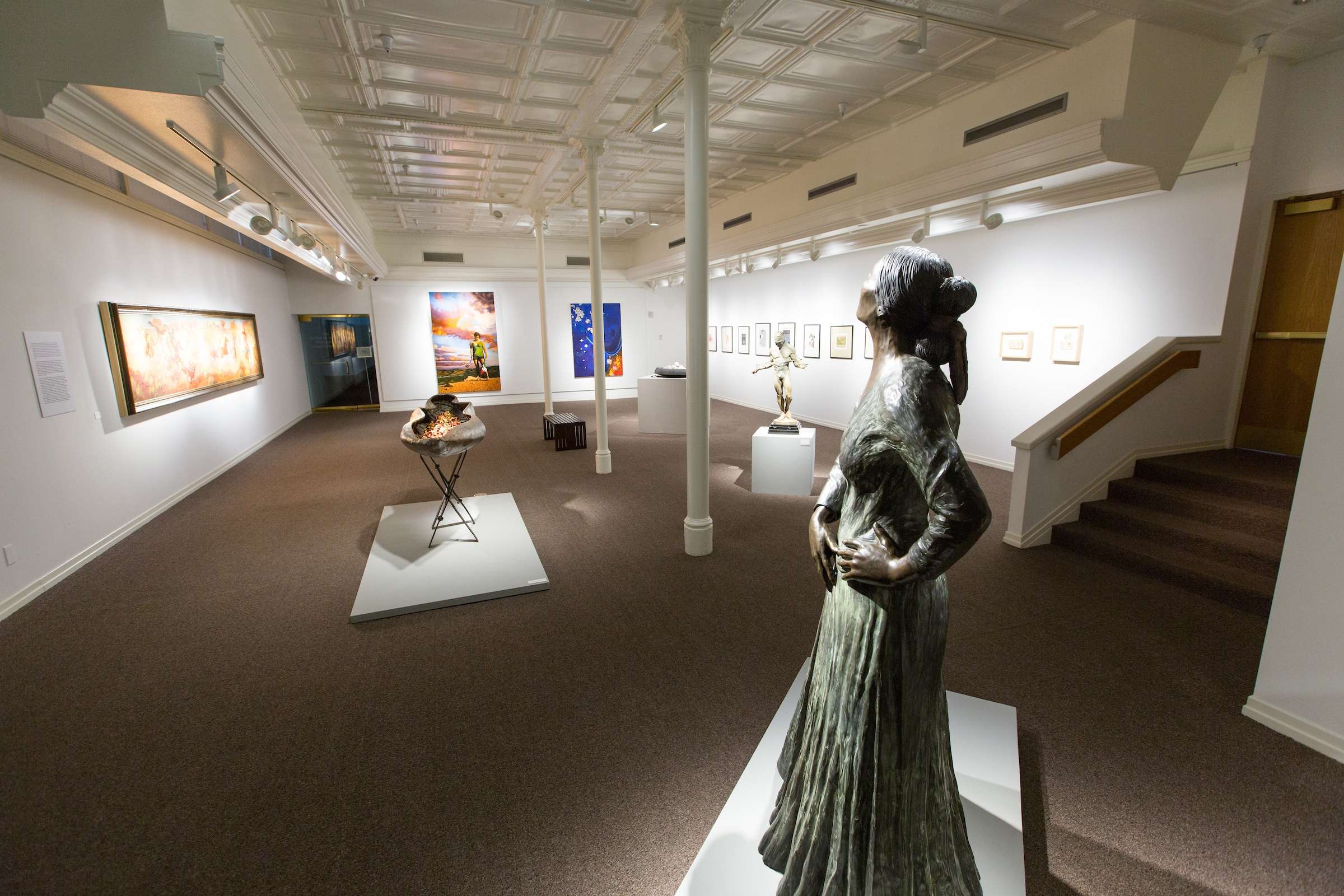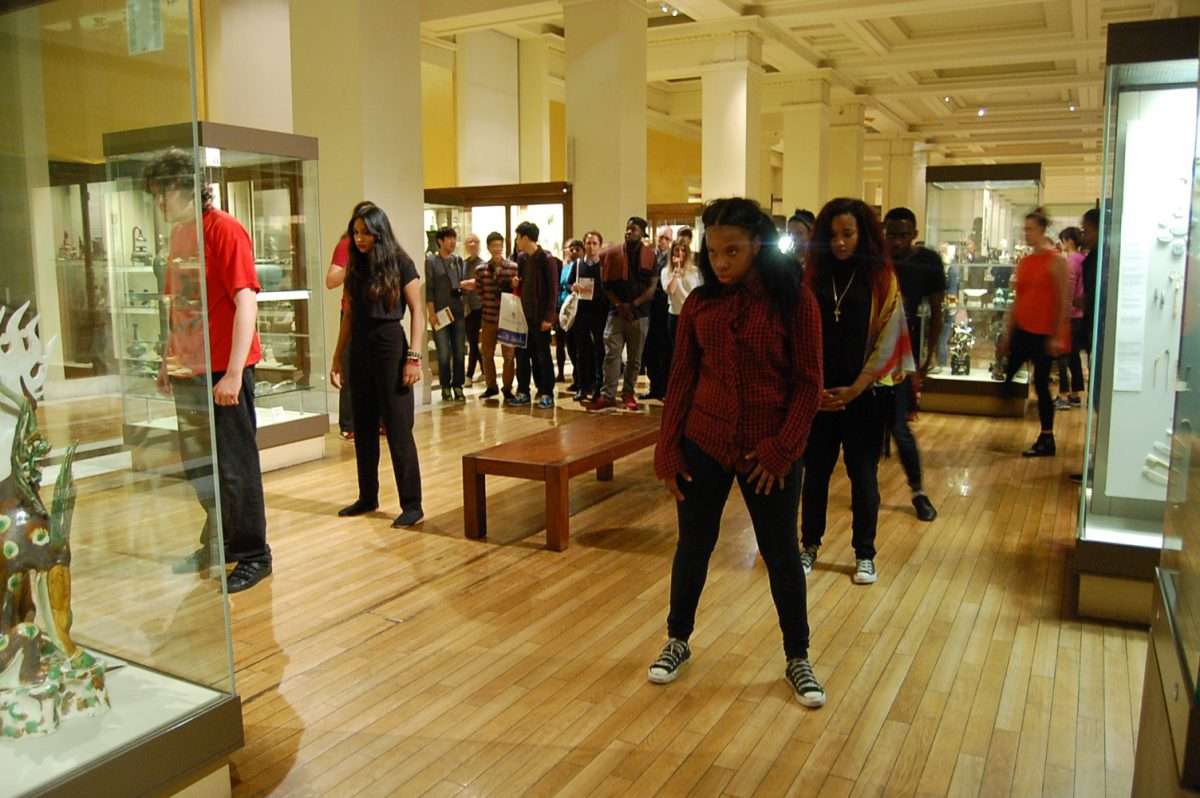Raising Funds For The Museum
Fundraising is one of the core duties of a museum curator as it’s essential to the survival and growth of the museum. Museum curators research wealthy and interested individuals or organizations and solicit their support. They write sponsorship letters and design exhibition events to attract donors to the museum. Sometimes, they carry out auction events and sell certain items to raise a specific amount. Museum curators also manage public campaigns that promote visiting the museum to generate more revenue.
New Charleston Commission Focused On Racial Equity Begins Work Amid Hope Suspicion
Our ability to ensure that every young person has unfettered access to the museum is one of our top priorities. Im excited to continue our partnership with Boeing in such a meaningful way, said Tonya Matthews, the IAAM’s president and CEO. With this support, we have the opportunity to meet one of our critical goals, reaching youth from all walks of life.
Boeing, one of the Charleston region’s largest manufacturing employers, was the first corporate donor to the museum with a $1 million contribution it announced in 2011. The Arlington, Va., company’s 787 Dreamliner jet program is based in North Charleston.
The IAAM said the new gift followed an April visit to the museum site on Concord Street by representatives of the aerospace giant, including Ziad Ojakli, executive vice president of government operations.
Boeing Co. executive Ziad Ojakli visited the International African American Museum in April. Provided/Boeing Co.
Applying For A Position
Recommended Reading: Jewish Museum Nyc Current Exhibits
What Does A Museum Curator Do
Museum curators design, install and arrange installations in museums, such as an art or history exhibit. They spend their days negotiating the acquisition of arts and planning their installation. A museum curator might specialize in a special area of art or work broadly in museums that offer a variety of exhibits.
Curators aren’t only responsible for the exhibits they also handle administrative duties around the museum and are often responsible for planning events, lectures, workshops and other activities centered around the artists and exhibits. A museum curator is an essential player in museum administration who liaises between administrators, artists and museum-goers to create the ultimate experience for people who enjoy art and other museum installations.
Related: History Degree Jobs
Career Salary And Education Information

What They Do: Archivists and curators oversee collections of historic items or artwork. Museum technicians and conservators prepare or restore items in museum collections.
Work Environment: Archivists, curators, museum technicians, and conservators work in museums, historical sites, governments, colleges and universities, corporations, and other institutions. Most work full time.
How to Become One: Archivist, curator, and conservator positions typically require a masters degree related to the positions field. Museum technicians typically have a bachelors degree. Prior experience gained through an internship or by volunteering in archives or museums is helpful in getting a position as an archivist, curator, museum technician, or conservator.
Salary: The median annual wage for archivists, curators, and museum workers is $50,120.
Job Outlook: Overall employment of archivists, curators, museum technicians, and conservators is projected to grow 19 percent over the next ten years, much faster than the average for all occupations.
Related Careers: Compare the job duties, education, job growth, and pay of archivists, curators, and museum workers with similar occupations.
Also Check: Museum Of Natural History Gem Exhibit
Excelling At Your New Job
What Degree Do You Need To Work In A Museum
Working in a museum can be highly gratifying, with a wide range of professions to suit a wide range of interests far more than you may expect.
However, the sector is severely oversubscribed, and there is frequently fierce rivalry for paid positions. The current situation is grim, as many cultural organizations that have lost income due to the lockout are increasingly resorting to layoffs, implying that competition for paid positions would be considerably fiercer beyond 2020. As a potential museum employee, the most important thing you can do is prioritize your own health. If youre still reading, know that the industry requires your expertise and enthusiasm.
They are administrative professionals with a flair for aesthetics and a love of design. Museum curators are likely to have a better career outlook than the general population. Youll learn everything you need to know about being a museum curator in this article, which will help you decide if this is the perfect career path for you.
Also Check: Museum Association Of New York Jobs
Final Thoughts: List Of Museum Jobs
While this list of museum jobs and what they do provides some of the most iconic and sought after positions in a museum, there are a number of jobs available to those interested in a museum.
Part of what keeps all of these departments together is the technology that binds a museum. ACMEs state-of-the-art CRM and ticketing software will help museums learns about the interests of their customers and simplify the transaction and ticketing process. ACMEs simple platform makes it easy to assess comprehensible data that will help your managers create curating strategies and marketing plans, all from one place. Keep your museum connected and schedule a demo of Acme today.
Tags:
Obtain A Bachelor’s Degree
The minimum requirement to become a museum curator is a bachelor’s degree. You can obtain a bachelor’s degree in a relevant field like history, archeology, arts, or museums studies. As the role of a museum curator also involves fundraising and negotiations, you can take courses in business administration. Learning a foreign language can also make you more attractive to employers, and it’s a good option for your bachelor’s degree coursework. Employers expect museum curators to be intelligent and well-educated, so you need to graduate with a good GPA and perform well in all your courses.
You May Like: National Wwii Museum New Orleans La
Learning And Participation Managers
Working in museum learning and participation is a really varied job that involves lots of contact with people. Museum Learning and Participation Managers want to make visitors of all ages and backgrounds feel welcome in museums and able to engage with the collections.
Learning and Participation Managers need to be aware of the needs of different groups of people, have excellent communication skills and be flexible and responsive to the people they work with. Some will specialise in working with particular groups of people, like school children, families or older people, while others will work with all visitors.
Some of the things Learning and Participation Managers might do include:
- designing workshops for schools that help young people learn more about subjects like history, geography or art
- creating activities for families such as craft sessions or trails that explore the collections
- supporting people with poor mental health to visit their museum to increase their sense of wellbeing.
Top 12 Jobs In A Museum
Museums offer a range of jobs to both graduates and non-graduates and welcome candidates from a diverse pool of specialisms. This ranges from candidates with general work experience to doctoral-level experts with knowledge relevant to the museum. If you’re interested in a museum career, it can be beneficial to learn more about the jobs available. In this article, we discuss 12 jobs in a museum and their average salaries, responsibilities and working conditions.
Recommended Reading: Day Out With Thomas Nc Transportation Museum
How To Become An Archivist Curator Or Museum Worker About This Section
Archivists, curators, and conservators typically need a masters degree museum technicians typically need a bachelors degree. Fields of degree may include fine and performing arts, history, or social science. Experience gained through an internship or by volunteering in archives or museums is helpful.
Can You Describe What Being The Deputy Director And Chief Curator Of A World

In a few words, I would say that it is an intense balancing act. As a deputy director working closely with director Richard Armstrong, I am responsible for content development at the Guggenheim in New York but also at our affiliates in Bilbao, Venice, and Abu Dhabi . I think about the institution in a global context and what that means for our programming, our collection, and our engagement in cultures around the world.
Then there is the more granular management of our exhibition calendar, working with the individual curators to best realize their programs, ensuring we stay on mission, produce new scholarship, and foreground innovation. We are all fundraisers at the museum, so a lot of my time is also dedicated to cultivating patrons, helping to identify individual donors and sponsors, and formulating initiatives that might attract support. As a curator, I also have my own exhibition projects to research and produce, which has always been the core of my practice.
Recommended Reading: Oak Lawn Children’s Museum
Employment Of Archivists Curators And Museum Workers
Much of the projected employment growth in these occupations is due to recovery from the COVID-19 recession that began in 2020. Employment growth will vary by occupation.
Demand for archivists is expected to increase as public and private organizations have more information and records that need to be organized and made accessible. In particular, the growing use of electronic records may create jobs for archivists.
Continued public interest in museums and other cultural centers is expected to increase the demand for curators, museum technicians, and conservators. However, because these are small occupations, over the decade the fast growth is expected to result in only about 2,900 new jobs for curators and about 2,800 new jobs for museum technicians and conservators.
Archives and museums that receive federal funds may be affected by changes to the federal budget, which in turn might impact employment of archivists, curators, museum technicians, and conservators.
| Occupational Title |
|---|
Working Conditions For Archivists Curators And Museum Professionals
About 35,000 people serve as archivists, curators, and museum employees. The following is a breakdown of the various vocations that make up archivists, curators, and museum workers:
- Technicians and conservators in museums: 13,500
- Curators: 13,400
The following are the largest employers of archivists, curators, and museum workers:
- Museums, historical places, and other institutions of a similar nature 34% of the population.
- Government is responsible for 24% of the total.
- State, local, and private educational services account for 18% of the total.
They may work at a desk or interact with the public, giving reference aid and educational services, depending on the size of the institution and the job they hold. Workers who restore and set up displays in museums, as well as those who work with bulky, heavy record containers, may be required to lift artifacts and climb ladders.
Don’t Miss: Perot Museum Of Nature And Science Parking
How To Get A Job In A Museum
If you are here because you are wondering how to get a job in a museum. Welcome! If you are here because of the wave of redundancies cutting a swathe through UK and international museums as a result of Covid-19, you are doubly welcome.
Museum work can be extremely rewarding, with a large variety of roles for different interests more than you might imagine. But, the sector is extremely over-subscribed and there is often a lot of competition for paid roles.
The current picture is a bleak one as many cultural organisations who have lost income during lockdown are turning more and more to redundancies, meaning that competition for paid roles will be even greater after 2020. The sector frequently states its ambitions to be inclusive and diverse, but inherent structural issues, exacerbated rather than caused by Covid-19, directly prevent inclusive practice.
The most important thing you can do as a prospective museum employee is to take care of yourself above all. If you are still reading, know that the sector needs you, your skill, and your passion.
Museum Career Salaries And Job Growth
The BLS notes that as of May 2019 the median annual salary for museum archivists, curators, and other types of museum workers was $49,850. Earners in the bottom 10th percentile made $28,330 per year, while those in the top 10th percentile made more than $87,760.
The BLS also projects employment to grow by 9% for archivists and by 10% for museum curators between 2018 and 2028. The growth projections for these positions are faster than the average for all occupations.
Read Also: Museum Of Cars In Los Angeles
Education For Archivists Curators And Museum Workers
Archivists. Archivists typically need a master’s degree in history, library science, archival science, political science, or public administration. Although many colleges and universities have history, library science, or other similar programs, only a few institutions offer master’s degrees in archival studies. Students may gain valuable archiving experience through volunteer or internship opportunities.
Curators. Curators typically need a master’s degree in art history, history, archaeology, or museum studies. Students with internship experience may have an advantage in the competitive job market.
In small museums, curator positions may be available to applicants with a bachelor’s degree. Because curators have administrative and managerial responsibilities, courses in business administration, public relations, marketing, and fundraising are recommended.
Museum technicians. Museum technicians, commonly known as registrars, typically need a bachelor’s degree. Few schools offer a bachelor’s degree in museum studies, so it is common for registrars to obtain an undergraduate degree in a related field, such as art history, history, or archaeology. Some jobs may require candidates to have a master’s degree in museum studies. Museums may prefer candidates with knowledge of the museum’s specialty, training in museum studies, or previous experience working in museums.
Obtain A Position As A Museum Curator
Apply for jobs as a museum curator once youve completed the required amount of education, skill development, and experience. Prepare your resume before applying for a job, making sure to include all relevant experience and customizing a cover letter for each position. When writing your resume and cover letter, one thing to keep in mind is to pick keywords from the job description and incorporate them throughout your materials.
Read Also: St Louis Art Museum Cost
Education & Training For A Museum Officer
You can work as a museum officer without formal qualifications. You will probably get some informal training on the job. Entry to this occupation may be improved if you have relevant volunteer experience or qualifications and you may like to consider a VET course. As subjects and prerequisites can vary between institutions, you should contact your chosen institution for further information.You can also become a museum officer through a traineeship. Entry requirements may vary, but employers generally require Year 10.
Advancement For Archivists Curators And Museum Workers

Continuing education is available through meetings, conferences, and workshops sponsored by archival, historical, and museum associations. Some large organizations, such as the U.S. National Archives and Records Administration in Washington, DC, offer in-house training.
Top museum positions are highly sought after and are competitive. Performing unique research and producing published work are important for advancement in large institutions. In addition, a doctoral degree may be needed for some advanced positions.
Museum workers employed in small institutions may have limited opportunities for promotion. They typically advance by transferring to a larger institution that has supervisory positions.
You May Like: Intrepid Sea Air & Space Museum New York
Take A Look At Our Guide To Careers In Museums And Galleries For Young People Created In Partnership With The Creative Industries Federation And Creative Careers Programme
Are you interested in helping people understand more about the past and how it affects the present and the future? If this sounds like you, then you might want to think about working in a museum, gallery or archive.
There are more than 1,800 museums across the UK. Some are home to large and internationally important collections, like the Natural History Museum, while others focus on a particular interest, such as cartoons, or a specific region, like the Museum of Cornwall.
People who work in museums and galleries do many different types of jobs, both working with the public and behind the scenes. You may have come across some museum jobs already, like a tour guide or shop assistant. Others may be less familiar, such as being a curator or conservator.
This guide will help you get a sense of some of the jobs you could do in a museum and what the next steps might be if you want to pursue a career in heritage.